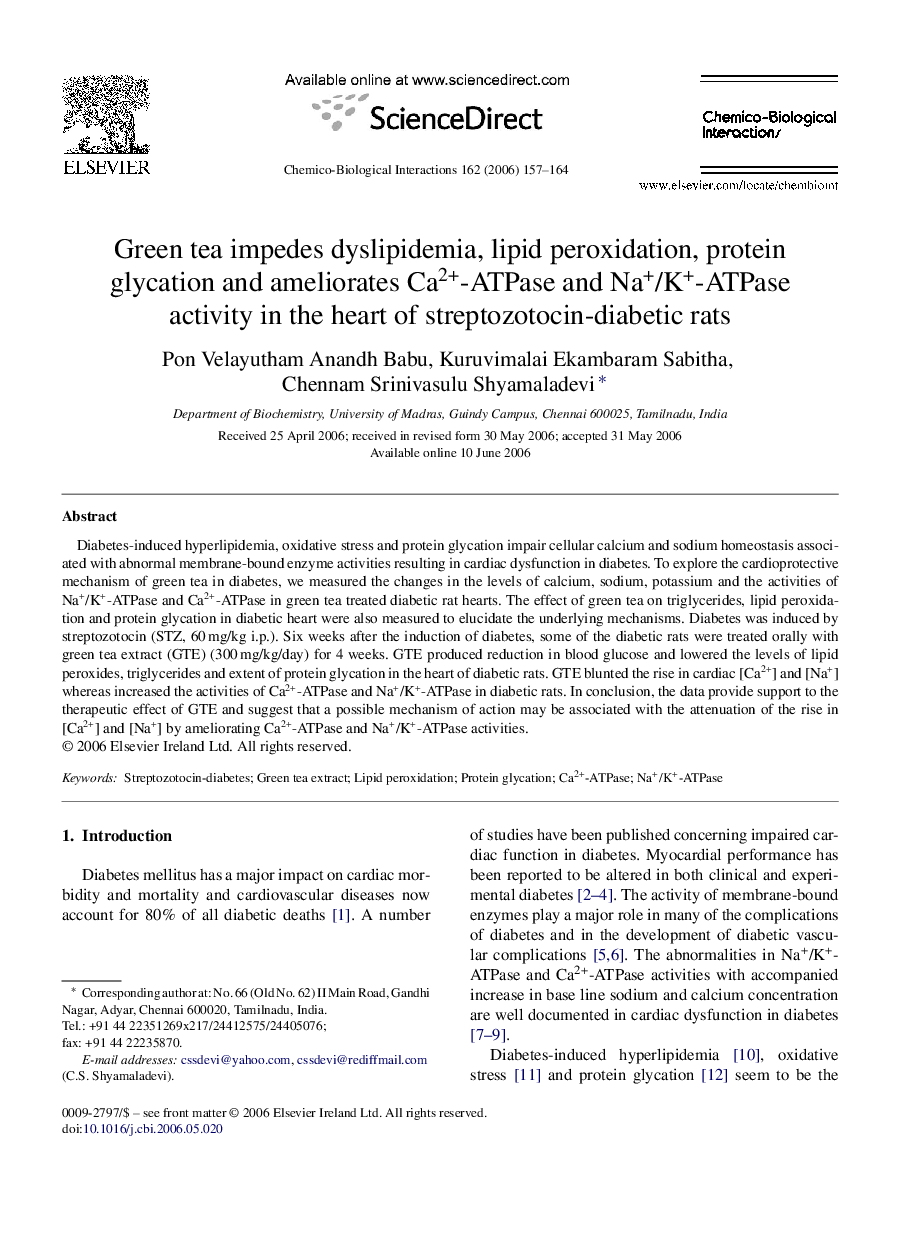| Article ID | Journal | Published Year | Pages | File Type |
|---|---|---|---|---|
| 2582491 | Chemico-Biological Interactions | 2006 | 8 Pages |
Diabetes-induced hyperlipidemia, oxidative stress and protein glycation impair cellular calcium and sodium homeostasis associated with abnormal membrane-bound enzyme activities resulting in cardiac dysfunction in diabetes. To explore the cardioprotective mechanism of green tea in diabetes, we measured the changes in the levels of calcium, sodium, potassium and the activities of Na+/K+-ATPase and Ca2+-ATPase in green tea treated diabetic rat hearts. The effect of green tea on triglycerides, lipid peroxidation and protein glycation in diabetic heart were also measured to elucidate the underlying mechanisms. Diabetes was induced by streptozotocin (STZ, 60 mg/kg i.p.). Six weeks after the induction of diabetes, some of the diabetic rats were treated orally with green tea extract (GTE) (300 mg/kg/day) for 4 weeks. GTE produced reduction in blood glucose and lowered the levels of lipid peroxides, triglycerides and extent of protein glycation in the heart of diabetic rats. GTE blunted the rise in cardiac [Ca2+] and [Na+] whereas increased the activities of Ca2+-ATPase and Na+/K+-ATPase in diabetic rats. In conclusion, the data provide support to the therapeutic effect of GTE and suggest that a possible mechanism of action may be associated with the attenuation of the rise in [Ca2+] and [Na+] by ameliorating Ca2+-ATPase and Na+/K+-ATPase activities.
